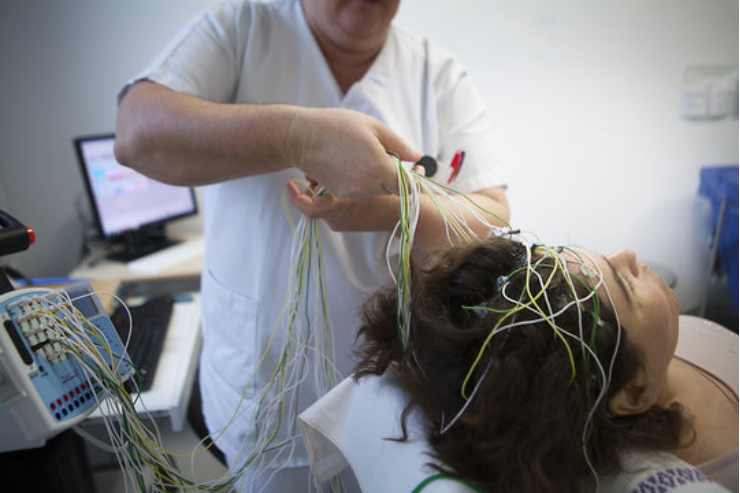Epilepsy is a neurological disorder characterized by recurrent seizures caused by abnormal electrical activity in the brain. It affects people of all ages and can vary widely in its presentation, severity, and impact on daily life. Effective management and treatment can help individuals with epilepsy lead fulfilling and productive lives.
What is Epilepsy?
Epilepsy is a chronic condition that results in unprovoked, recurrent seizures. Seizures are sudden bursts of electrical activity in the brain that can cause a variety of symptoms, including changes in behavior, sensations, and motor functions. The type and severity of seizures can vary based on the area of the brain affected and the underlying cause of the epilepsy.
Types of Seizures:
- Focal Seizures: Originate in a specific area of the brain and can be classified as simple or complex, depending on whether consciousness is impaired.
- Generalized Seizures: Involve both sides of the brain from the onset and can include tonic-clonic seizures (formerly known as grand mal), absence seizures, and myoclonic seizures.
Causes of Epilepsy
Epilepsy can result from a variety of causes, including:
- Genetic Factors: Inherited genetic mutations may increase the risk of developing epilepsy.
- Brain Injury: Trauma, stroke, or infections can lead to brain damage and trigger seizures.
- Brain Abnormalities: Structural abnormalities in the brain, such as tumors or malformations, can cause epilepsy.
- Infections: Conditions like meningitis or encephalitis can affect brain function and lead to seizures.
- Metabolic Disorders: Imbalances in electrolytes or other metabolic issues may contribute to seizure activity.
Diagnosing Epilepsy
To diagnose epilepsy, a comprehensive evaluation is necessary, which may include:
- Medical History: Detailed discussion of seizure episodes, including their frequency, duration, and symptoms.
- Neurological Examination: Assessment of neurological function and evaluation for signs of brain dysfunction.
- Electroencephalogram (EEG): Measures electrical activity in the brain to identify abnormal patterns associated with epilepsy.
- Imaging Studies: MRI or CT scans may be used to detect structural abnormalities, tumors, or other underlying causes.
- Blood Tests: To rule out metabolic or infectious causes of seizures.
Treatment and Management of Epilepsy
Effective management of epilepsy involves a combination of medical treatments, lifestyle adjustments, and supportive therapies. Treatment goals include reducing the frequency and severity of seizures, improving quality of life, and minimizing side effects.
Medications:
- Anti-Seizure Medications: The primary treatment for epilepsy involves medications that help control seizures. Commonly prescribed drugs include levetiracetam, lamotrigine, and valproate.
- Medication Management: Regular follow-up with a healthcare provider is essential to adjust dosages and address potential side effects.
Lifestyle Adjustments:
- Seizure Triggers: Identifying and avoiding triggers such as stress, lack of sleep, or specific dietary factors can help manage seizures.
- Regular Sleep: Maintaining a consistent sleep schedule is crucial for individuals with epilepsy.
- Healthy Diet: A balanced diet and proper hydration can support overall health and seizure management.
Surgical Options:
- Resective Surgery: For patients with focal seizures that do not respond to medication, surgical removal of the seizure focus may be considered.
- Vagus Nerve Stimulation (VNS): An implanted device stimulates the vagus nerve to help reduce seizure frequency.
- Responsive Neurostimulation (RNS): A device implanted in the brain detects abnormal activity and delivers electrical pulses to prevent seizures.
Supportive Therapies:
- Cognitive Behavioral Therapy (CBT): Can help individuals cope with the emotional and psychological impact of epilepsy.
- Support Groups: Connecting with others who have epilepsy can provide emotional support and practical advice.
Emergency Management:
- Seizure First Aid: Educating family members and caregivers on how to respond during a seizure can help ensure safety and provide appropriate care.
Expert Care for Epilepsy
For personalized and expert care in managing epilepsy, Dr. Sameep Koshti offers a comprehensive approach to diagnosis and treatment. With a focus on individualized care, Dr. Koshti utilizes advanced techniques and therapies to help patients achieve better seizure control and improve their quality of life.
Epilepsy is a complex condition that requires careful management and treatment. If you or a loved one are experiencing seizures or have been diagnosed with epilepsy, consulting with Dr. Koshti can provide you with the necessary tools and support to effectively manage the condition. With the right care and resources, individuals with epilepsy can lead fulfilling and successful lives.
